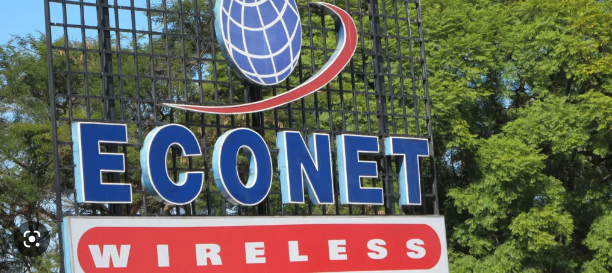By ETimes
In order to redeem the existing debentures in the capital of both companies, Zimbabwe Stock Exchange (ZSE) listed telecommunications company Econet Zimbabwe and its offshoot, EcoCash Holdings, announced their intention to raise US$30,3 million through a renounceable rights issue.
The two companies issued cautionary statements earlier in the month to alert shareholders of their intention to issue new ordinary shares through renounceable rights offer.
A type of share offering called a renounceable rights issue gives current owners the chance to purchase more shares in proportion to their current holdings. As a result, present owners have the option to purchase a specific number of additional shares at a reduced price that is often lower than the going stock price.
The 2020 offer made to Edgar’s shareholders by the retailer is comparable to the current rights offering on the ZSE.
The board of directors of Econet and EcoCash are reportedly exploring suggestions to call for an extra-ordinary general meeting of members to resolve the rights issue, according to comments made by the firms.
Money obtained from the rights offering will be used to pay down the company’s existing debt.
Conversation has been had on what such a move means to the existing shareholder and the future of the company, and Business Weekly spoke to analysts to debunk the situation.
According to economist Dr. Prosper Chitambara, a rights issue can have several effects on a company’s shareholding and market share price both positive and negative.
“A rights issue involves the issuance of new shares, which can result in the dilution of existing shareholders’ stakes. This is because the new shares are usually offered to existing shareholders in proportion to their existing holdings, and they have the option to buy more shares at a discounted price.
“This means that if existing shareholders choose not to participate in the rights issue, their ownership percentage in the company may decrease.”
Another economist Prof. Tony Hawkins said the issuance of new shares through a rights issue increases the number of shares outstanding in the market, which can impact the market share price.
“If the market perceives that the new shares will dilute the earnings per share (EPS) of the company, the share price may decrease. However, if the market believes that the funds raised through the rights issue will be used to pursue growth opportunities or pay off debt, the share price may increase,” he added.
Analyst Martin Nyirenda said such a move is a limited capital raising method and if lack of cash is the reason behind the rights issue, it hampers the company’s reputation a bit.
“Econet is facing a cash shortage, and they do not want to go to another bank or financial institution to raise money, especially when they are already in debt as it is. They have preferred to ask their existing stakeholders to buy extra shares to gather sufficient cash.
“This will not affect the owners as existing shareholders become major controllers and to be honest this is the fastest way to raise capital,” he said.
Economist Gladys Mutsopotsi – Shumbabiri said shareholders of Econet should not be worried as the company is in good standing.
“The company is a major company and an industry leader, the reason they must be doing such a rights offer is to avoid such a situation in the future as the economy is volatile. In terms of investment it is still a buy because its fundamentals are intact.
“In this case I believe the issue of a rights option is to avoid using the cash they have to repay a debt and limit their investment package especially during such a period they are undertaking 5G investments in the country.”
Other scholars argue that a rights issue can be seen as a sign of confidence by the company’s management that it has a solid plan for growth and is confident in its future prospects.
This is said that it can increase investor confidence and attract new investors, which may result in an increase in the market share price.
Whilst others say a rights issue can also have an impact on a company’s balance sheet.
If the funds raised through the rights issue are used to pay off debt, it can improve the company’s financial health and creditworthiness. This can result in a positive impact on the market share price which is what Econet and EcoCash will be hoping for.
Under the current economic climate, Econet released a fair set of financial results. The group benefited from a somewhat stable operating environment, as evidenced by the noticeable climb in the implied USD revenues at US$469,1 million.
Despite the rise, the figure is some way off the peak dollarisation era earnings (accounting for the unbundled EcoCash historical earnings). The recent trend in the group’s historic earnings illustrates the depressed operating environment facing the local business sector.
Nevertheless, the Econet Wireless group strives forward. The depressed consumer environment will not offer much growth in the short term, and the unbundling of the tech operations means internal growth opportunities are limited as well.
However, it is positive that the group has been able to maintain its margins despite the inflationary pressures, although this may have come at the expense of operating efficiency, given the rising complaints about service quality.
It has been noted by analysts that the company is in good standing and the share sell off is temporary and will be weathered as fundamentals will reign supreme. Since the cautionary statement, Econet has lost 19 percent of its share price whilst EcoCash lost 44,78 percent of its share price – Harare


